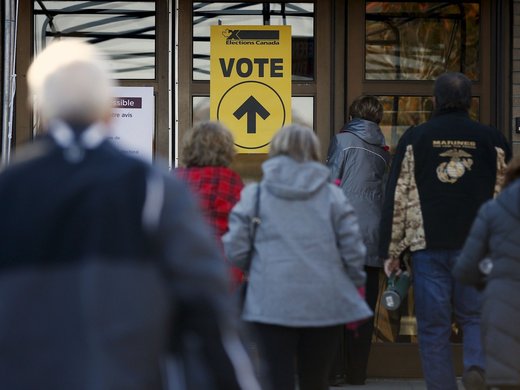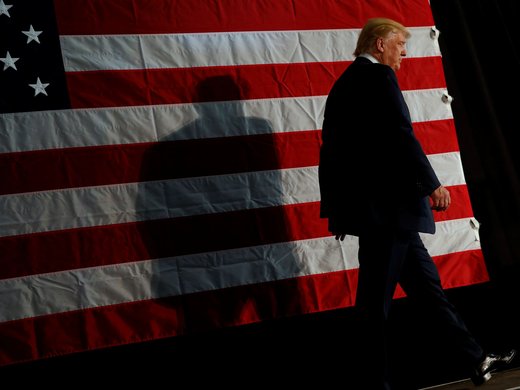Scared? You are meant to be. Everything you have read about the US election has been cast in a way to keep you frozen in your seat until the show is over. It is the way we journalists do things. You thought Mitt Romney had a shot at becoming president four years ago? Ha! Got you! And judging by the jumpy stock markets and the spike in the price of gold, it looks like we’ve done it again: people who should know better appear to think that Donald Trump might win on Nov. 8.
Every reporter is taught that there is no story without tension. That is why every electoral contest feels like a nailbiter, even when the odds heavily favour one contestant. News outlets have kept us engaged in Trump vs. Hillary (Clinton) by emphasizing national polls over prediction models. The S&P 500 Index was on an eight-day losing streak, apparently because Trump caught Clinton in a series of nationwide and state polls. In a country as rigidly partisan as the US, it should surprise no one that the Democratic and Republican candidates would attract roughly equal amounts of core support. What matters is where those supporters live, and who stands the greater chance of persuading independents to vote for them. Traditional polls offer little in this regard. They might say something about the national mood, but they say much less about who stands the greatest chance of winning the 270 electoral college votes needed to become president. Jim Messina, who was Obama’s campaign manager, says traditional polls — the ones based on telephone surveys of a few hundred people — are useless. Better are the prediction models that combine polls with other data to put odds on the outcome of elections. There are lots of these and they have good success rates. But you are far more likely to have read recently that Clinton and Trump are tied than you are to have read that Trump has less than a 15% chance of becoming president, according to the New York Times's elections model. Larry Sabato, a political science professor at the University of Virginia who has been predicting the electoral college for years, says Clinton likely already has secured all the states she needs to win the White House, while Trump has no obvious path to victory.
The most famous of the election modelers is that Nate Silver, who edits the FiveThirtyEight blog. Silver is less sure of a Clinton victory than his rivals. His methodology gives the Democratic candidate a 67 percent chance of winning, down from around 87 percent at the time of the third televised debate on Oct. 19. The Trump campaign has used the shift to claim momentum, -- just as journalists have used it to support their narratives of a close race and as traders have used it to justify their decisions to sell stocks to hold gold and cash. Yet Silver is the outlier. And he gives Trump only a 30 percent of winning. Those aren’t impossible odds, but they certainly are long ones.
There is reason to believe the portrayal of the campaign as a contest of equals has caused serious economic damage. I originally wrote about this theme in August for Canadian Business magazine. There was a smattering of anecdotal evidence that Canadian companies were afraid to invest because they were freaked out by the prospect of a Trump presidency. More recently, Bank of Canada Governor Stephen Poloz noted the same. The central bank’s October economic outlook listed uncertainty over the outcome of the US election as one of a handful of factors that has impeded business investment this year, and thereby forcing the central bank to cut its forecast for economic growth. Poloz said policy makers were concerned enough by the miss that they “actively” considered cutting interest rates. They opted to hold off because it was too difficult to tell if conditions were more likely to get better or worse.
I will bet they are about to get better. The prospect of a new president cancelling the North American Free Trade Agreement certainly would be destroy the business models of thousands of Canadian companies. But one wonders if the incredible stories they were reading about the US election would have been as scary if they had contained paragraphs explaining that the monster had a 15 percent chance of winning? A paper published earlier this year by the National Bureau of Economic Research suggests that the business press has a tendency to devote more time to slumps than it does to rallies, creating an impression among market participants that crashes are far more likely than they are in reality.
Something similar has happened with Trump, only instead introducing wariness into financial markets, the coverage of the US election has caused business owners and executives to run home and lock the doors. Don’t let anyone tell you the influence of the press is waning. It created a bogeyman and told us to be scared. Too few of us bothered to look under the bed to assure ourselves that there is nothing there.


